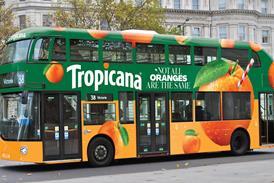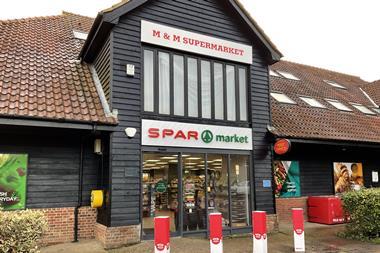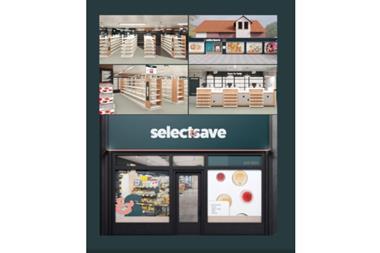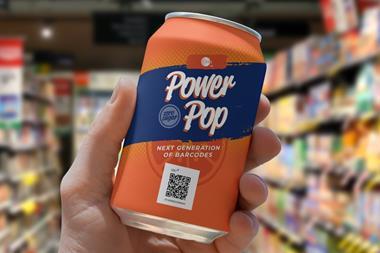Shoppers are willing to pay more for quality food and in store experience, making a butchery counter a real asset. Retailers reveal how the service can add up to a bigger basket spend and a loyal customer base
When Byford’s Food Hall first started out it was as a butchers. That was 50 years ago, and in that time a lot has changed in retailing. However, its fresh meat counter is as important today as it was then, thanks to shoppers putting increasing importance on in-store experience, quality products and personal service.
The recent Convenience Tracking Programme conducted by HIM Research & Consulting cites customer experience as a vital factor in securing loyalty and spend in the convenience sector. Those who rate the in-store experience highly (ie giving it a mark of nine or 10 out of 10) visit the store 50% more often and spend 42% more than other shoppers. In addition, the average basket size of such shoppers is 16% higher, and they are 32% more likely to recommend the store to others.
According to HIM, shoppers want to be “tempted and inspired” once in-store, and an enticing display of freshly-prepared meats certainly fits the bill. Some 31% of shoppers say they will trade up to a more premium product if they enjoy the in-store experience and this, according to CTP, is particularly true in the meat category.
The 18,000sq ft Byford’s store in Eastwood, Leigh-on-sea, Essex, designates 25% of its store space to its butchery counter and backroom meat preparation facilities. The 10-metre serve-over butchery counter and deli stocks meat from 10 suppliers, with the fresh meat category representing 17.2% of the store’s overall sales.
“We make up to 40% margin on some of our meat products and it is a big part of our business,” says owner Robert Byford. “We also know that our customers buy more fresh vegetables, sauces and marinades and even bottles of wine when they buy meat. Our basket spend is up this year and it is because we have put more emphasis on cross-merchandising the meat with other categories.”
He adds that price generally isn’t an issue, “because people are more willing to spend a bit more on their meat, especially when they know they are getting a quality product”.
Breaking into butchery isn’t something that can be taken lightly, however. Says Robert: “It is a big investment at first as the start-up costs will be about £50,000 for the equipment and the counter itself and extra refrigeration and labour costs. But there are ways to make it easier. You can get hold of some really good second-hand equipment for good prices and you don’t have to buy everything new, and it will be worth it.”
How do consumers identify quality meat?
1. If it is British or sourced locally
2. If the flavour is better
3. The brand name
4. Product appearance
5. Because it is healthier
SOURCE: IGD June 2016
David Charman, who owns Spar Parkfoot in West Malling, Kent, says he decided to incorporate a counter in his store four years ago. “We first decided to introduce it after being invited to Northern Ireland by Spar to see how stores there were successfully running meat counters.
“After learning about what was involved and seeing the benefits of running the service first hand, I identified it as a big opportunity for us. Like anything, you can’t just do something and expect it to be a big success, you have to do it properly or don’t bother doing it at all. You can’t cut corners with this sort of thing. We have worked hard on getting the butchery counter right and as a result it has become very profitable with very healthy margins.”
David says his butchery counter is about five-metres long and represents about 5% of the total business in size, taking into account the backroom facilities.
Spar Eat 17 in Hackney, East London, one of a number of Eat 17 stores, installed a butchery counter after discovering demand for freshly-prepared, quality meat. Butcher manager Jason Turner says: “Fresh meat is very important to us and to our customers. When we started out, we needed to make sure we listened to our customers’ needs and got the best suppliers available.”
According to a poll by the Agriculture and Horticulture Development Board, some 29% of consumers say they try to buy British meat and will pay more for it, too. Meanwhile, 45% of consumers believe it to be more important to buy British food now that the UK is exiting the European Union.
The meat sold at East 17 Hackney reflects this, as Jason explains: “Because our customers want premium and quality products, most of our meat is from free-range suppliers. We tell our customers about the origins of our products and explain to them anything they want to know. We offer a range of preparation services and they can have as much or as little as they want; that is key to getting customers coming back.”
Running a butchery counter is a labour intensive exercise, though, and it takes skilled staff. At Spar Parkfoot, David hired staff with specific expertise, dedicated to the counter in order to keep things running like clockwork.
David says: “We first started by hiring skilled and trained butchers. We now have four members of staff who are pretty much solely dedicated to working on the butchery counter. This is crucial. You need to hire the right people to make it work. By bringing in a skilled butcher then you have someone who has this expertise already so the labour cost is worth it.”
For Robert, butchery is “second nature to us”. He says all of his new staff are multi-skilled as “we train them to be able to do everything. It takes about four years to train them to the standard that we want”.
Jason agrees that hiring an experienced butcher that has the expertise and understanding to make things work is important in operating a butchery counter. He points out that another risk in running a butchery counter is competition. “It is very important to look at what the local competition is, and finding a quality supplier that will set your store above the competition is vital.”
In the early days, waste management can cause retailers complications, too, says Robert. However, he has a system in place that protects against this: “We don’t waste much at all. If something is nearing the end of its shelf life then we use it in the deli counter or reduce the price, so it never gets chucked out because people like a bargain, or freeze it for another day. If you can keep on top of things, you will cut down waste and profit,” he says.
Stand out from the supermarkets
David believes that his meat offering betters that of the nearby supermarkets. “The advantage of having a butchery counter is that it helps to create a unique point of difference compared with the supermarkets. We can offer a wider range of products and can provide a personal service, too,” he says.
At Byford’s Food Hall, Robert says his store’s offer also trumps the supermarkets’. “We can offer a larger range, much more expertise and personal customer service. We virtually make everything we sell, we stock very little pre-packed meat, although we still stock it because some customers are looking for it. We make to order, we can bone or butterfly the meat or even cook it for them or provide cooking instructions.
“We try to have as many unique selling propositions as we can, for example, with the range of services we offer, even down to slicing bacon in front of the customers. We also create our own innovations and marinades, such as our new turkey, lemon coriander burger. We have 10 new products for barbecues that take our total up to 50 barbecue products.”
Butchery counters also chime with the trend for shoppers looking to be inspired for the meal for tonight.
Jason says: “Some customers come into the store with an exact idea of what it is they want, other times they don’t. The butchery counter plays a role in inspiring them, this is because the counter looks great and attracts impulse purchases as customers enjoy looking at what is new and trying new products, and this increases basket spend.
“We make very good margin on our meat and we find that customers are willing to pay a price premium, because they know that what they are getting is quality, right down to the source.”
Be prepared
As with other fresh categories, independent retailers must be prepared for all occasions, with events, special occasions and warm weather identified as key sales drivers. However, retailers also need to take into account the fact that different meats sell better on different days of the week.
“Chicken is always our most popular meat during the week and beef roasting joints tend to be popular on the weekend, so it is important to be fully stocked on the weekends and be prepared for what products will be in demand and when,” says Jason.
Spar Parkfoot is open 24 hours a day, Monday to Saturday, and until 8pm on Sundays. David says that it is vital to stay open on a Sunday. “Sunday is a very busy day for the butchery counter. People come in to pick up meat for their dinner for that day and others to feed a whole family or party of people. You can sell a lot of meat on Sundays,” he says.
Robert agrees, as Sundays are his second busiest day after Saturday, and when the weather is good meat sales at his store can climb by as much as 50%.
For retailers considering taking the plunge into running a butchery counter, it is important to do some homework to ensure you find the right suppliers. Robert says that joining the National Federation of Meat and Food Traders (NFMFT) can be beneficial. “The NFMFT are great, they are so supportive and can give you advice and guidance and help identifying suppliers. We use them regularly.”
Equipment is another area to take into account, Robert adds. “Refrigeration is obviously vital so if something goes wrong and breaks down, it can be devastating. Make sure your refrigeration provider is local enough so that they could come to make repairs as soon as possible.”
David urges retailers to be patient. He adds: “My advice to retailers would be to persevere, nothing happens overnight. Get the right people in and make sure customer service levels are as high as they can be. If you get it right and it is run well, the waste will be minimal and the margins will be good.”
Supply and demand
Spar Eat 17 in Hackney, East London, has the butchery counter running so smoothly that it has begun supplying meat to other c-stores.
In February, the store began supplying south-east London retailer Spar Brockley. Eat 17 restocks and rotates the products that will be carried in one-and-a-half chillers.
Spar Brockley owner Peter Patel says: “We were using another butcher, but we found sales had been dropping and dropping and they weren’t local. We wanted something more local so we thought Eat 17 would provide a good opportunity.”
James Brundle, co-owner of Eat 17, says the chain would also consider supplying other stores. “We would be open to look at other retailers, provided it’s a high-quality retailer because our meat is higher quality, and we do our own Eat 17 branding. We’ve got a huge range, but we will have to get the balance right on what’s selling and what’s not.”
Brockley stocks all cuts of chicken, beef, lamb, pork, plus hand-made gluten-free sausages.
Source
Simon Banks





















No comments yet